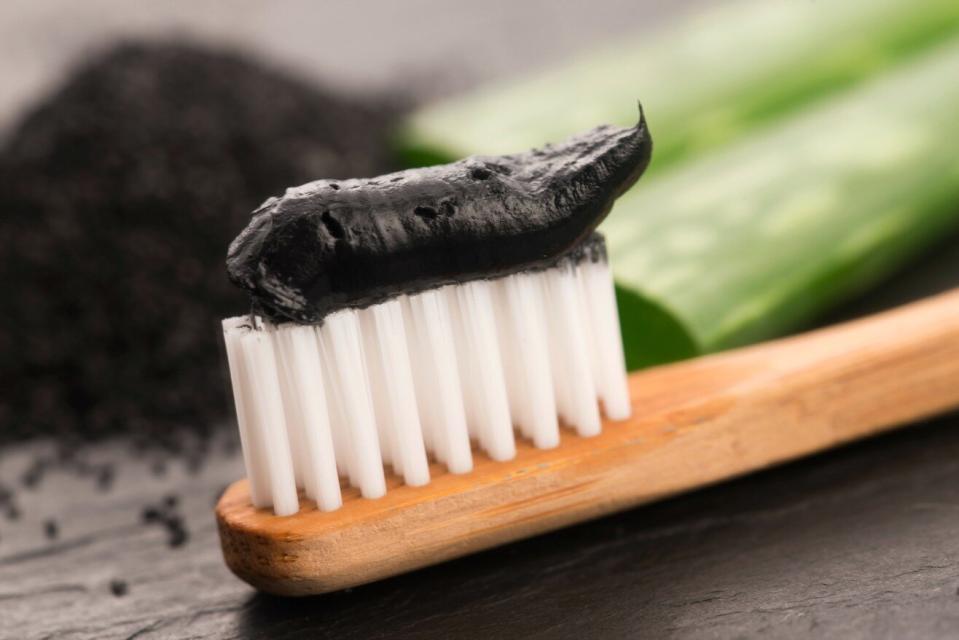Dentist weighs in on charcoal toothpaste

We’ve all heard the hype around charcoal toothpaste.
The unusual black paste has made the rounds on social media, promising to get teeth dirty to keep them clean.
One brand, Cali White Activated Charcoal and Organic Coconut Oil Toothpaste, is not only a mouthful, but a best-seller on Amazon.
It’s average rating is almost 5 stars, and at only US$10 it’s not going to break the bank, but it’s got an unusual list of ingredients that might make a few shoppers hesitate.
It’s fluoride-free and boasts activated charcoal and coconut oil, and is apparently an absolute knock-out when it comes to results.
“It’s actually incredible. I have noticed a huge difference in how white my teeth are now. I’m a heavy smoker so this is definitely a game changer,” one review read.
“My teeth do look whiter and I am experiencing no sensitivity... it doesn’t stain my sink or toothbrush–two things I had been concerned about,” another concurred.
What’s the experts opinion on activated charcoal?

US cosmetic dentist Brian Kantor tells Yahoo Lifestyle that he would recommend activated charcoal as a supplement to normal toothpaste only.
Why? While it’s great for removing surface stains, its lack of fluoride means it won’t prevent dental decay.
“Activated charcoal can be used as a supplement to brushing with regular toothpaste for people who are seeking a whiter smile through the removal of surface stains,” he explains.
“But it is necessary to also make sure the toothpaste includes fluoride.”
What about coconut oil?

Many customer’s freak at the thought of charcoals gritty texture, and swilling oil in your mouth.
“I was worried this toothpaste would have a similar consistency to plain coconut oil and the charcoal would be gritty,” one customer admitted.
“Nope to both. Smooth consistency, zero grit, and tastes great!”
Dr. Kantor weighs in on coconut oil saying, “Oil pulling (an ancient Ayurvedic dental practice that involves swishing oil around in your mouth) has shown to reduce inflammation by combining the fat-soluble toxins found in the mouth — a byproduct of bacterial dental plaque — with coconut oil.”
In this case, coconut oil results in fresher breath, whiter teeth and reduced gum inflammation.
Bottom line
If you’re on the fence, Dr Kantor says to carefully consider, “potential effects on the gums and enamel on the teeth”.
He points out that as a ‘material with abrasive properties’ charcoal toothpaste isn’t for everyone.
Sounds like a win for stains, however, just maybe not as a replacement for your typical tube.
Words by Adrianna Barrionuevo
Got a story tip? Send it to lifestyle.tips@verizonmedia.com
Want more lifestyle and celebrity news? Follow Yahoo Lifestyle onFacebook, Twitter and Instagram.
Or sign up to our daily newsletterhere.

 Yahoo Lifestyle
Yahoo Lifestyle 

